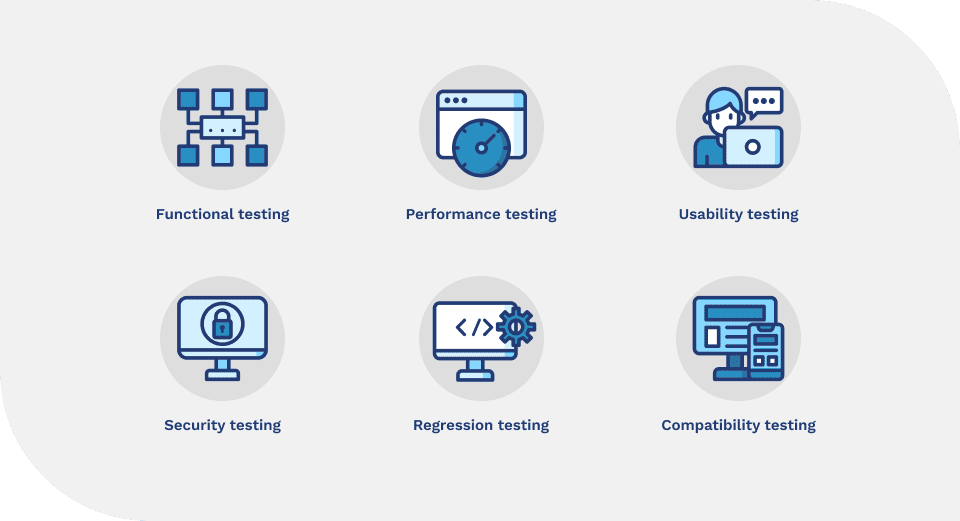Quality assurance (QA) is essential to maintaining product integrity, operational efficiency, and customer satisfaction. In-house QA ensures that businesses meet stringent quality standards.
However, with the evolving demands of modern markets, companies are increasingly exploring the possibility of outsourcing their QA functions.
Can Quality Assurance Functions Be Outsourced?
Traditionally, QA has been managed in-house to ensure that operations meet the strict standards set by business owners. For many companies, outsourcing these critical functions might seem counterintuitive. Nevertheless, QA outsourcing involves delegating various quality control and testing activities to third-party providers, allowing companies to focus on their core competencies.
The scope of QA tasks that can be outsourced is vast, including software testing, product inspection, compliance audits, process monitoring, and customer feedback analysis.
What QA Functions Can Be Outsourced?
Outsourcing opens up opportunities to tap into expert testing services that cover a wide array of QA needs.
Commonly outsourced QA functions include:

For example, businesses can outsource functional testing to ensure their software or products perform as intended. Similarly, regression testing checks that updates don’t interfere with existing features, while performance testing evaluates how well applications handle real-world conditions, such as heavy traffic or complex user interactions.
Outsourced QA can also cover compliance and security testing, where industry standards and data protection regulations are critical. By having experts on board, businesses ensure their products meet necessary legal and security guidelines.
Lastly, outsourcing customer feedback analysis gives companies the tools to better understand user experiences and continuously improve product quality.
When to Outsource QA
Deciding if and when to outsource your QA tasks is a strategic choice for companies aiming to balance growth and efficiency. Leveraging external expertise through outsourcing providers can be the right decision if your company is dealing with issues that impede QA efficiency.
One common scenario is when a company lacks in-house expertise, especially if they have hired inexperienced QA engineers. For example, a business developing a mobile app may not have specialists with the necessary skills to perform thorough testing for functionality, performance, and security.
Another situation is when teams have to work under tight project deadlines. In these cases, they may struggle to maintain product quality due to time constraints.
Cost considerations also play a role. Building and maintaining a full-time, in-house QA team can be expensive, particularly for companies with limited budgets. They might find themselves needing QA support, but unable to justify the expense of hiring full-time staff.
Scalability is another factor. Projects often require different levels of QA effort at various stages. During intense development phases, they may need additional QA resources, but this need might decrease during quieter periods.
In all scenarios, outsourcing may be a feasible solution for companies that need QA tasks done but may not have the manpower or time to invest in talent acquisition, training, and deployment.
Benefits of Outsourcing QA
Outsourcing QA functions offers significant advantages for businesses looking to streamline operations and maintain high-quality standards. First and foremost, cost savings are a primary benefit. According to a report by Deloitte, 57% of companies cite cost reduction as the key driver behind outsourcing decisions.
By outsourcing, businesses avoid the overhead costs associated with maintaining an in-house team and gain access to specialized expertise without the expense of hiring full-time staff.
On top of cost savings, access to specialized expertise is another major benefit. Outsourcing providers bring in-depth knowledge of advanced testing methodologies and tools, making them ideal partners for companies launching new products or entering competitive markets.
Outsourcing also allows for scalability, enabling businesses to adjust their QA efforts based on demand, whether they’re ramping up for a product launch or managing fluctuating workloads.
For example, Microsoft worked with an outsourced QA firm to manage the extensive testing needs of its Xbox platform. The partnership helped Microsoft reduce its time-to-market by 25%, demonstrating how outsourcing can accelerate development cycles and enhance operational efficiency.
Challenges and Considerations in QA Outsourcing

Outsourcing QA functions is not without its challenges. Ensuring that your outsourcing partner maintains your quality standards is critical. Misaligned goals or inconsistent processes can result in subpar outcomes.
In this context, it’s crucial to select a provider that has a proven track record of maintaining high standards.
Effective communication is also key. When working with partners in different time zones, businesses often face communication barriers that hinder collaboration. Setting up regular communication protocols and using collaboration tools can mitigate this challenge. Finally, companies need to address data security concerns.
Outsourcing involves sharing sensitive data with third-party providers, which may expose businesses to potential security risks. According to Statista, 43% of companies identify security concerns as a significant obstacle in outsourcing arrangements.
Addressing Outsourcing Challenges
To overcome these challenges, companies should adopt best practices that ensure a smooth transition to QA outsourcing. Selecting the right partner is paramount. Businesses must choose providers with a proven track record, robust security measures, and a deep understanding of the specific industry requirements.
Client testimonials and case studies can provide valuable insights into a provider’s capability.
Establishing clear communication channels also plays a critical role in successful outsourcing. Setting up dedicated points of contact, conducting regular meetings, and maintaining transparent documentation ensures smooth coordination between the in-house team and the outsourcing provider. Additionally, companies must implement robust quality control measures, using defined KPIs to track performance and ensure high standards are consistently met.
Metrics such as defect density and test coverage provide essential feedback on the effectiveness of outsourced QA processes.
Best Practices for Managing Outsourced QA
Managing outsourced QA requires strategic planning and relationship-building. Establishing detailed Service Level Agreements (SLAs) is one of the most effective ways to ensure clarity around project scope, expectations, and performance metrics.
These contracts should be comprehensive and specific, setting benchmarks for success.
Continuous monitoring and feedback are also essential to maintaining alignment between the outsourcing provider and the business. Regular feedback loops and performance reviews ensure that outsourced teams are responsive to evolving project needs. For instance, Salesforce uses continuous feedback mechanisms in its partnerships with third-party QA providers, ensuring that its stringent quality standards are consistently met.

Amazon outsourced the testing of its Prime Video platform to a third-party provider, which resulted in a 35% reduction in defects and a notable improvement in customer satisfaction ratings. By leveraging outsourced QA, Amazon was able to maintain high-quality service levels during periods of rapid growth.
Similarly, Spotify partnered with an outsourced QA team to handle the complexities of testing across multiple devices and operating systems. This collaboration resulted in a 50% improvement in bug detection, enabling Spotify to deliver a seamless user experience across its platforms.
Investing in relationship building can dramatically enhance the success of an outsourcing arrangement. Mutual trust, transparency, and open communication are the pillars of successful collaboration.
Long-term partnerships based on trust yield far better results than transactional relationships.
Make It BIG with Outsourced Quality Assurance
Outsourcing quality assurance functions can provide transformative benefits for companies, from cost savings and specialized expertise to scalability and operational efficiency. Success depends on careful planning, selecting the right partner, and implementing best practices to address challenges like communication and data security. With tailored solutions, Big Outsource offers a strategic advantage in managing your QA functions, ensuring that your products meet the highest standards of quality.
Ready to Make It BIG with your QA processes?
Contact us today for a free consultation and take the first step toward superior quality assurance, with customized solutions that fit your business needs.


